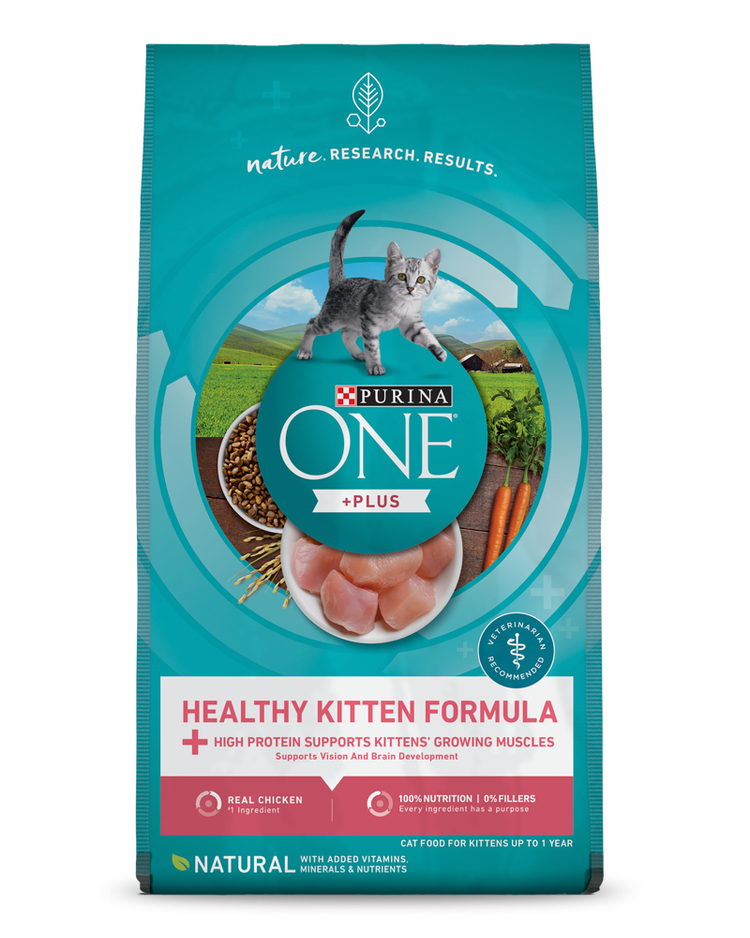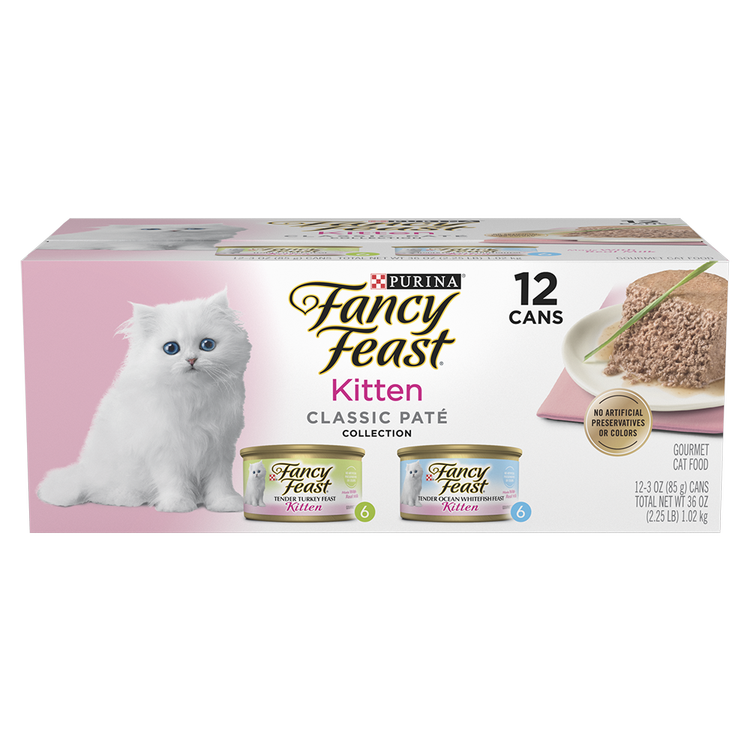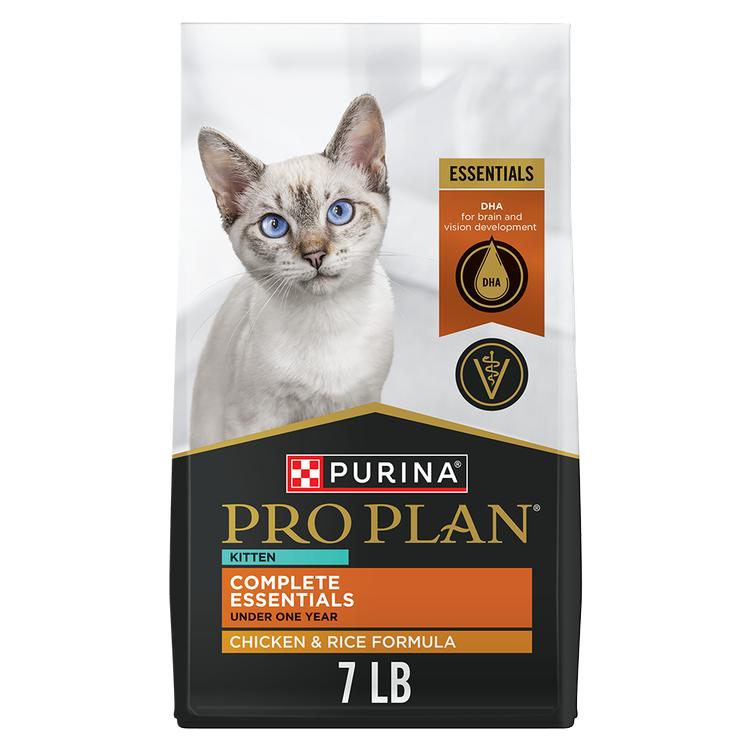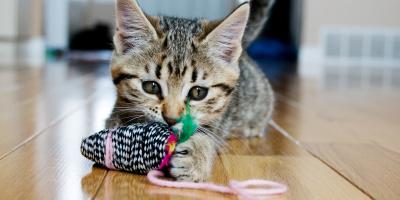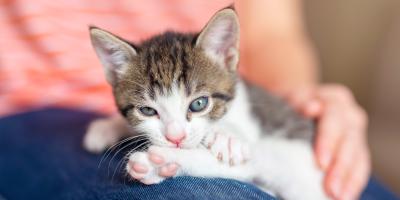Can Kittens Eat Adult Cat Food?

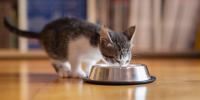
It’s amazing how much joy (and change!) a new kitten can bring to your family. And while life with a kitten is certainly different, in the best way possible, this transformation pales in comparison with the changes your kitten will experience during their first year!
While your kitten is adjusting to life as a new member of your household, they are also going through the process of becoming an adult cat. All in the space of about a year!
You might think your kitten looks like a diminutive adult cat, but their nutritional needs are different from adult cats. To fuel their vital first year of development, they need a diet formulated for kittens, to provide the support they need for the best possible start.
Kitten Food vs. Cat Food: What’s the Difference?
You may be wondering, do kittens and cats need to eat different food for each life stage? The biggest difference between a complete and balanced kitten food and a complete and balanced adult cat food is the purpose behind the nutritional formulation. A kitten food is formulated to support healthy growth while supplying all key nutrients. A quality food for adult maintenance provides all of the essential nutrients in the correct proportions to promote the health and wellness of an adult cat.
In addition to their rapid growth and development, kittens expend a huge amount of energy being the playful and lively youngsters they are. To support all this activity, they need a diet higher in calories and specific nutrients, including:
- Protein: As obligate carnivores, cats need more protein than dogs, who are omnivores. Kittens need even more protein than adult cats.
- Essential amino acids: Kittens need more arginine, lysine and methionine.
- Fat: Kittens need more essential fatty acids.
- Calcium and Phosphorus: Kittens need more calcium and phosphorus to support growth and development of their bones and teeth than they will as adult cats.
- DHA: Kittens need the omega-3 fatty acid DHA for healthy brain and vision development.
- Vitamins and Minerals: Like adult cats, kittens need daily vitamins and minerals. However, during their first year they need more magnesium, copper, iodine and vitamin A than adult cats.
These are just a few important reasons why you should give your kitten the healthy head start of a quality kitten food until it’s time to switch to adult cat food.
When Can Kittens Eat Regular Cat Food?
Experts generally recommend feeding kittens a diet specially formulated for kitten growth and development until they reach one year of age. This information can be found in the nutritional adequacy statement found on pet food labels. You may also see foods whose labels state that they are appropriate for kittens as well as adult cats (all life stage foods). These foods typically have a high calorie density which may be inappropriate for some adult cats with excess body weight. Kittens should not be fed a diet that states it is only for adult maintenance.
What’s the Best Food for Your Kitten?
The best food for your kitten is one that is made to fulfill their nutritional needs as they grow, to help them develop into healthy adult cats.
Can Kittens Eat Regular Wet Cat Food?
Canned food can be beneficial for young kittens, whose tiny teeth may have difficulty chewing hard kibble. It can also provide hydration in addition to their fresh water (which should be available to them at all times). Including canned food in your kitten’s daily diet is a good way to ensure they are getting the nutrition they need.
Canned food is available in kitten formulas, so you can give your kitten the benefits of a wet food, along with nutrition specially formulated for kitten development. Pro Plan and Fancy Feast are two Purina brands offering a variety of enticing canned foods, complete and balanced for kitten nourishment.
Can Kittens Eat Hard Cat Food?
While kittens can usually eat dry cat food after about two months, that food should be one formulated with kitten development in mind. Cat food, which is formulated for healthy adult cat maintenance, does not supply the additional nutrients a growing, active kitten needs.
Purina offers a range of quality, complete-and-balanced kitten formula choices, in both wet and dry forms, in flavors and textures to delight every young feline eater.
A Food Formulated for Kittens is the Right Start for Your Kitten
When it comes to healthy nutrition, the first year of your kitten’s life will set the stage for the rest of their life. By choosing a quality kitten food to nourish your kitten during their critical first year, you can provide a nutritional foundation that will benefit them for the rest of their years.
For more expert tips on feeding your kitten, explore our other kitten feeding articles.

Find Your Pet’s Perfect Food
Get your personalized recommendation with our Pet Food Finder tool.

